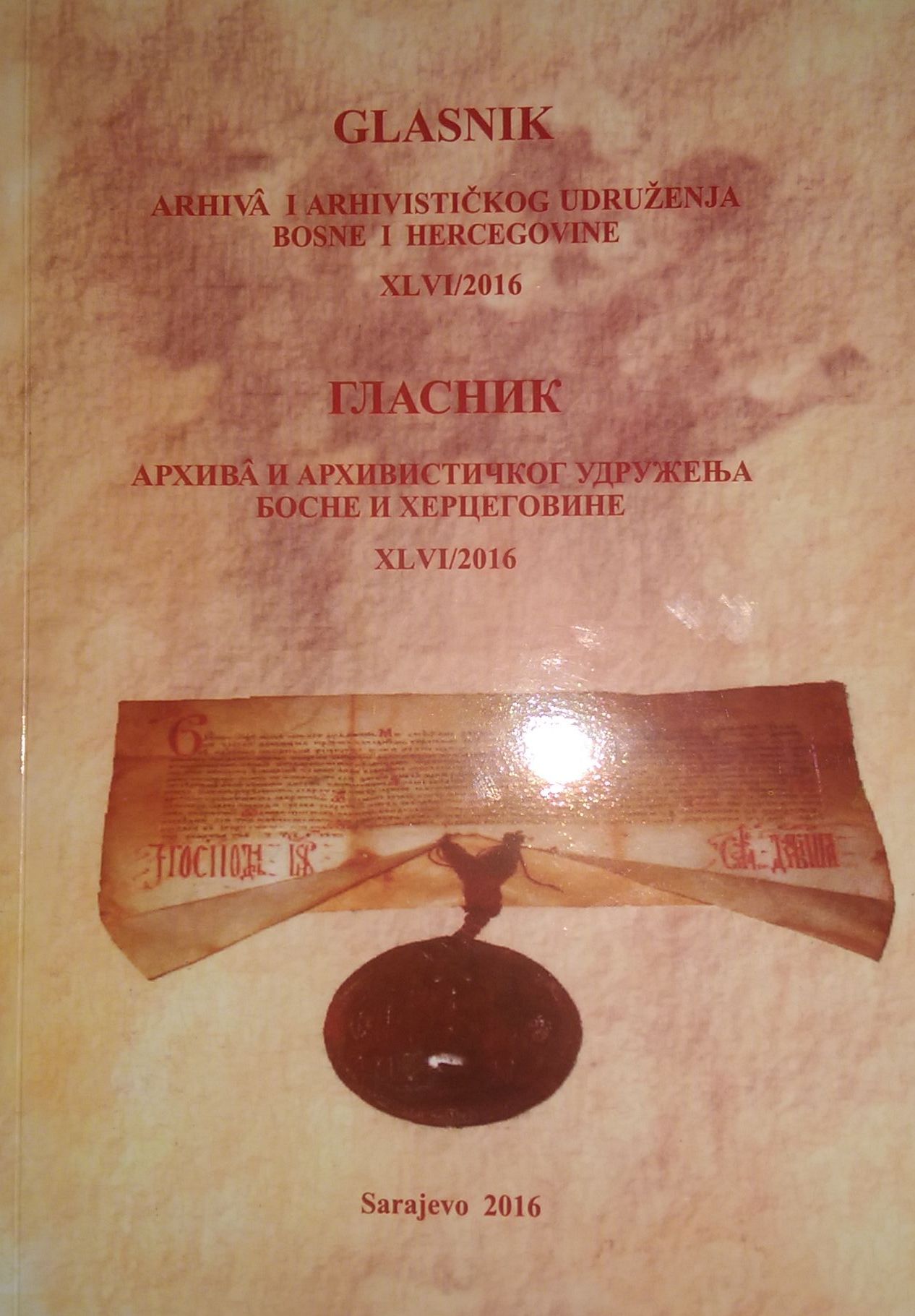UTICAJ OSMANLIJA NA PROCES DRUŠTVENIH PROMJENA U SREDNJOVJEKOVNOJ BOSNI OD 1455. DO 1463. GODINE
THE INFLUENCE OF THE OTTOMANS TO THE PROCESS OF SOCIAL CHANGES IN MEDIEVAL BOSNIA FROM 1455 TO 1463
Author(s): Alen SalihovićSubject(s): Cultural history, Economic history, Social history, 15th Century
Published by: Arhivističko udruženje Bosne i Hercegovine AUBiH
Keywords: The Ottoman Empire; medieval Bosnia; the Ottoman influence in Bosnia; social change; the Bosnian Church; the Dubrovnik Republic; the Venetian Republic; migrations; Bosnian krajiste; Vilajet Hodidjed;
Summary/Abstract: With the constant presence of the Ottomans in medieval Bosnia from 1448. the process of social changes was continued. The roots of the social changes can be found from period of the first Ottomans incursion into Bosnian territory all the way to 17 century. Ottoman Empire with the different governmental structure (in relation to medieval Bosnia) establishing authority in Vrhbosna brought changes in medieval Bosnian society. These changes are reflected through different aspects. Bosnian nobility that first come under attack of Ottomans needed to pay tribute and accept ottoman authority or live own inheritance. In most cases those conditions accepted less powerful Bosnian nobility. More powerful Bosnian nobility Ottomans try to weaken by diplomacy and military tactics. Ottomans very skillfully finding moment to involve in mutual conflict of Bosnian nobility. When less powerful Bosnian nobility entered in Ottoman service they De Facto accepted ottoman sultan as ruler. They kept territory but they need to pay tribute to sultan, so this practice burden on the peasantry. On the some parts of Bosnian kingdom as for example in Tilava ottoman rule constantly risen. On the villages the Ottomans earlier feudal system to new timar system. The timar system over time influenced in changes of Bosnian feudal relations. Ottoman influence of changes in Bosnian kingdom also affected relations in religion. Due the diplomatic and military pressure of the Ottomans in Bosnia, Bosnian kings (Stjepan Tomas and Stjepan Tomasevic) tried to find material and military support from western European countries. To get support they had to get sympathy from Catholic Church in Rome. Therefore began the changes in religious structure in Bosnia, because the Bosnian king renounced teaching of Bosnian church and accepted teaching of official Roman Catholic Church. This religious conversion of Bosnian king supposed to be a good example to other members of Bosnian Church, but members of Bosnian Church not accepted conversion in massive numbers. So, the king attempt his intensions carry out with some repressive measures. With the Ottomans presence in medieval Bosnia the Bosnian population more often met Islamic faith. From the historical sources the Ottomans in this period did not require from serf to change their religion. Also Ottoman did not require from Bosnian nobility to change religion in order to keep earlier privileges. Because in period 1455-1463. the Ottomans did not had enough people from their own rank in Bosnian krajiste (Vilayet Hodidjed), they also gave important positions to Christians. As a result of Ottoman conquest of Bosnian kingdom in 1463 rural and urban population mostly suffered. The part of Bosnian population immigrated to safer territory while slightly smaller number were captured by Ottomans. All this directly affected changes in demographic structure of Bosnian population which can be seen by the historical sources (defters) from the later period. After Bosnia fell under the rule of Ottoman Empire in 1463, some Bosnian medieval nobility still tried to keep earlier status in Bosnian society. Therefore they maintained diplomatic relations with Catholic Church, Republic of Venice and Republic of Ragusa but they achievement had led to the personal interests.
Journal: Glasnik arhiva i Arhivističkog udruženja Bosne i Hercegovine
- Issue Year: 2016
- Issue No: 46
- Page Range: 125-143
- Page Count: 19
- Language: Bosnian, Croatian, Serbian

